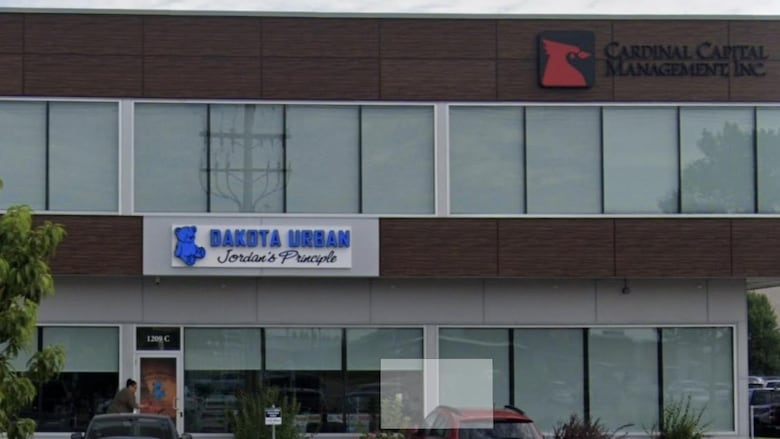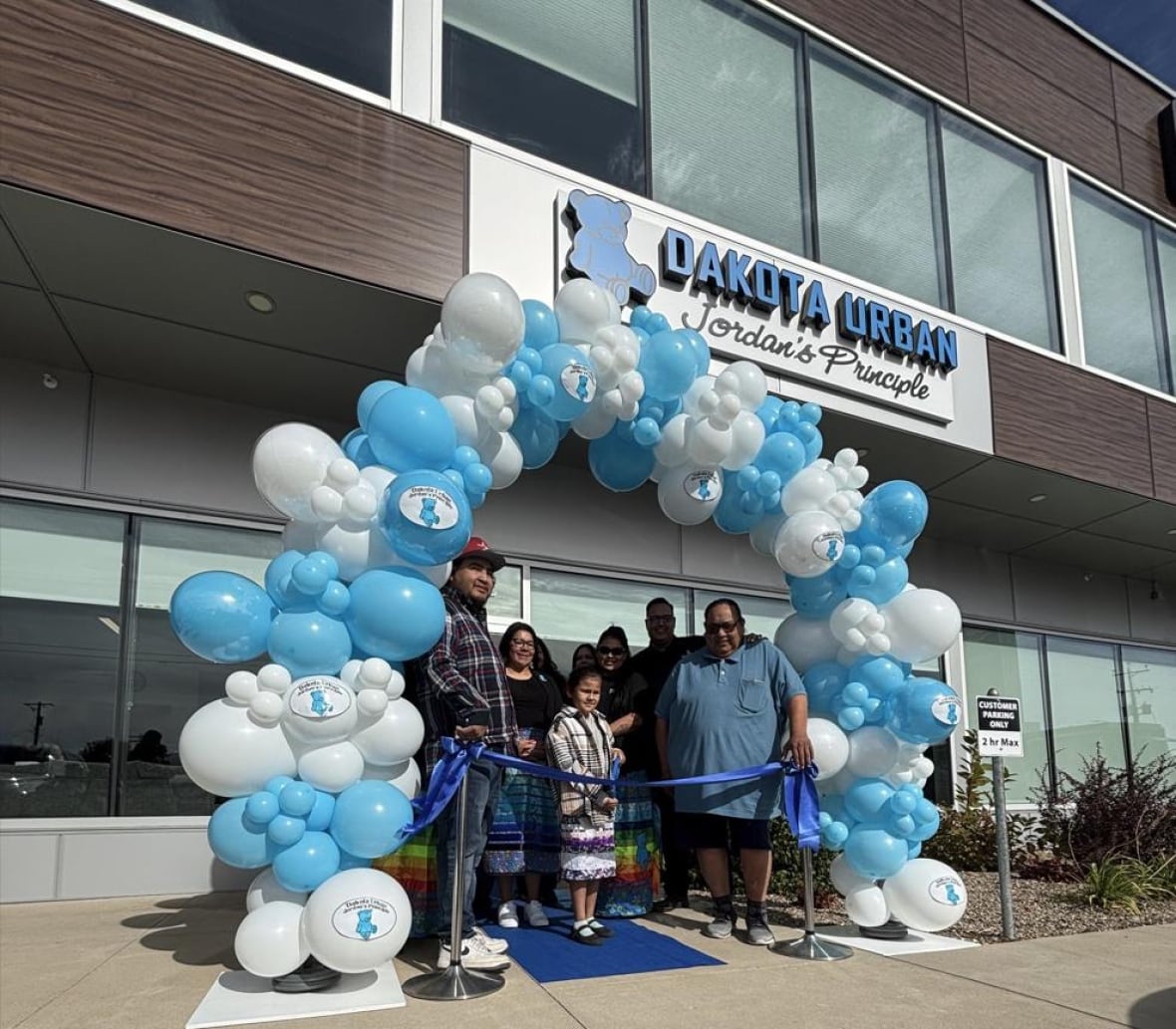Jordan's Principle office in Brandon shuts down over federal funding cuts
Children left without critical services, says Canupawakpa Dakota First Nation chief

A Jordan's Principle office serving urban children and families from Canupawakpa Dakota First Nation and Birdtail Sioux First Nation in Brandon, Man. has shut its doors, citing a major reduction in federal funding.
Canupawakpa Chief Raymond Brown told CBC News the First Nation saw federal funding for Jordan's Principle cut by millions.
"We couldn't afford to keep that office open," Brown said.
The Dakota Urban Jordan's Principle office, located at 1209 Richmond Ave., opened in October 2024 and closed in the spring, forcing Canupawakpa to lay off five employees.
Brown said the closure of the urban office marks a significant blow to the delivery of services under Jordan's Principle — an initiative to ensure First Nations youth can access essential health and social services without delay or disruption, with jurisdictional questions over which government should pay to be worked out later.
In February, the federal government announced changes to Jordan's Principle that narrow the range of eligible requests. Indigenous Services Canada, which has been handling funding requests, says it's dealing with an enormous backlog of about 140,000, and in March announced operational and eligibility changes, amid concerns the funding was not being used as intended.
CBC contacted Indigenous Services Canada for comment. In a statement sent Saturday, a spokesperson said the building was not run by Indigenous Services Canada and was jointly operated by Canupawakpa Dakota Nation and Birdtail Sioux First Nation.
The federal government's funding cuts have left the Dakota Urban Jordan's Principle office unable to continue operations, despite growing demands, Brown said. He estimates around 100 families consistently visited the office.
The closure means families and children will lose access to essential services like school lunches, teaching assistants and transportation, Brown said.
The decision to close the office and lay off around five workers happened before her election in April, said Birdtail Sioux First Nation Chief Tréchelle Bunn. She said Jordan's Principle funding is still being processed and Birdtail is still receiving notices of how much the community will receive this year.
While there's still a Jordan's Principle office in Birdtail Sioux First Nation, the funding cuts are making some supports and services inaccessible for urban members, she said.
"It's really unfortunate and it's kind of out of our control at this point," Bunn said.
New funding model needed, says chief
Bunn said First Nation leaders, communities and families were not fairly consulted when it comes to Jordan's Principle funding changes. She said the government needs to be held accountable for this.
"A buzzword, I think, that is often used is a 'nation to nation relationship,'" Bunn said. "For that to happen, there needs to actually be communication and consultation with the leaders and community members."
The funding changes to Jordan's Principle are part of a long history of the federal government imposing their own ideas of what First Nation children need, cutting out First Nation leadership and families who know first-hand what's best, said Assembly of Manitoba Chiefs Grand Chief Kyra Wilson.
"These conversations are not happening with our leadership, with our families," Wilson said. "These conversations are happening in government offices where they are not seeing the direct impacts of the lack of services and support ... that's also very frustrating."

Canupawakpa still has an on-reserve Jordan's Principle office, Brown said, but it is considerably smaller with fewer services. He warned any medical help through the service will now need to come with doctors' approval.
That will make life harder for families, he said.
In Canupawakpa, they want their own funding service that's specific to the Dakota people, Brown said. Jordan's Principle had too many restrictions and they need something that works better for the community.
"We can handle our own funding and our own finances how we want," Brown said. "This is our country."

